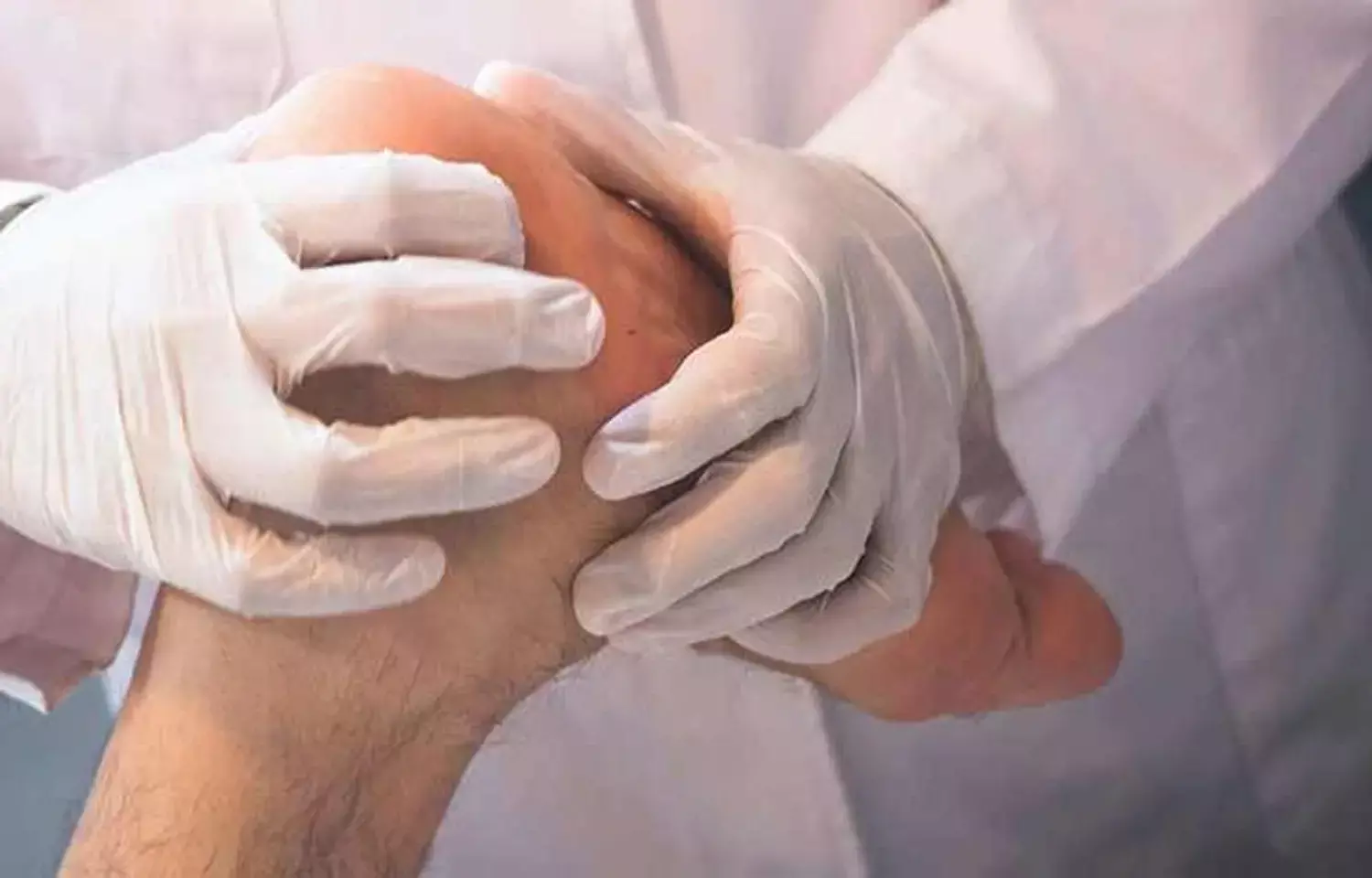- Home
- Medical news & Guidelines
- Anesthesiology
- Cardiology and CTVS
- Critical Care
- Dentistry
- Dermatology
- Diabetes and Endocrinology
- ENT
- Gastroenterology
- Medicine
- Nephrology
- Neurology
- Obstretics-Gynaecology
- Oncology
- Ophthalmology
- Orthopaedics
- Pediatrics-Neonatology
- Psychiatry
- Pulmonology
- Radiology
- Surgery
- Urology
- Laboratory Medicine
- Diet
- Nursing
- Paramedical
- Physiotherapy
- Health news
- Fact Check
- Bone Health Fact Check
- Brain Health Fact Check
- Cancer Related Fact Check
- Child Care Fact Check
- Dental and oral health fact check
- Diabetes and metabolic health fact check
- Diet and Nutrition Fact Check
- Eye and ENT Care Fact Check
- Fitness fact check
- Gut health fact check
- Heart health fact check
- Kidney health fact check
- Medical education fact check
- Men's health fact check
- Respiratory fact check
- Skin and hair care fact check
- Vaccine and Immunization fact check
- Women's health fact check
- AYUSH
- State News
- Andaman and Nicobar Islands
- Andhra Pradesh
- Arunachal Pradesh
- Assam
- Bihar
- Chandigarh
- Chattisgarh
- Dadra and Nagar Haveli
- Daman and Diu
- Delhi
- Goa
- Gujarat
- Haryana
- Himachal Pradesh
- Jammu & Kashmir
- Jharkhand
- Karnataka
- Kerala
- Ladakh
- Lakshadweep
- Madhya Pradesh
- Maharashtra
- Manipur
- Meghalaya
- Mizoram
- Nagaland
- Odisha
- Puducherry
- Punjab
- Rajasthan
- Sikkim
- Tamil Nadu
- Telangana
- Tripura
- Uttar Pradesh
- Uttrakhand
- West Bengal
- Medical Education
- Industry
Risk score may predict risk of major adverse limb events in diabetes patients: Study

USA: A risk score may identify patients with type 2 diabetes (T2D) at high risk for major adverse limb events (MALE) including those without a history of peripheral artery disease (PAD), according to a recent study in the journal Diabetic Medicine. MALE included gangrene, revascularization and amputation.
Models that predict amputation in people with T2D with foot ulceration or infection do exist, E. Hope Weissler, Duke University School of Medicine, Durham, NC, USA, and colleagues aimed to develop a predictuon model for a broader range of MALE among people with type 2 diabetes.
For this purpose, the researchers analyzed post hoc data from the Exenatide Study of Cardiovascular Event Lowering (EXSCEL) trial. They compared participants who experienced MALE with those who did not. A multivariable model was constructed and translated into a risk score.
Participants were monitored for adverse events for the duration of the trial and a 90-day, post-trial follow-up period. Outcomes were assessed at clinical care visits at 1 week, 2 months, 6 months and every 6 months thereafter for the duration of the trial.
Key findings of the study include:
- Among the 14,752 participants with type 2 diabetes in EXSCEL, 3.6% experienced MALE.
- Characteristics associated with increased risk of MALE were peripheral artery disease (PAD) (HRadj 4.83), prior foot ulcer (HRadj 2.16), prior amputation (HRadj 2.00), current smoking (HRadj 2.00), insulin use (HRadj 1.86), coronary artery disease (HRadj 1.67) and male sex (HRadj 1.64).
- Cerebrovascular disease, former smoking, age, glycated haemoglobin, race and neuropathy were also associated significantly with MALE after adjustment.
- A risk score ranging from 6 to 96 points was constructed, with a C‐statistic of 0.822.
"The majority of MALE occurred among participants with PAD, but participants without a history of PAD also experienced MALE. A risk score with good performance was generated," wrote the authors. "Although it requires validation in an external dataset, this risk score may be valuable in identifying patients requiring more intensive care and closer follow‐up."
Reference:
The study titled, "Predicting major adverse limb events in individuals with type 2 diabetes: Insights from the EXSCEL trial," is published in the journal Diabetic Medicine.
DOI: https://onlinelibrary.wiley.com/doi/abs/10.1111/dme.14552
Dr Kamal Kant Kohli-MBBS, DTCD- a chest specialist with more than 30 years of practice and a flair for writing clinical articles, Dr Kamal Kant Kohli joined Medical Dialogues as a Chief Editor of Medical News. Besides writing articles, as an editor, he proofreads and verifies all the medical content published on Medical Dialogues including those coming from journals, studies,medical conferences,guidelines etc. Email: drkohli@medicaldialogues.in. Contact no. 011-43720751


